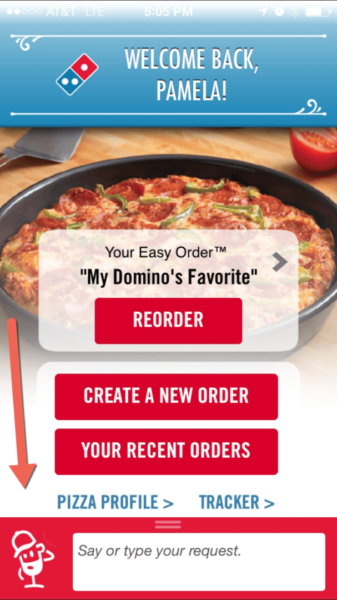Understanding & Leveraging Search By Voice: Up Close @SMX
Columnist Rachel Lindteigen recaps a presentation on voice search and opportunities for marketers, in coverage of the SMX West conference.
Today, smartphones represent 75% of all mobile devices in use, and by the end of 2015, that number is expected to be over 80%, comScore reported in 2014. Increasingly, those smart devices are equipped with voice search in the form of Siri, Cortana or Google Now.
Voice search is changing the way consumers interact with their smartphones — and other devices — and it’s important for marketers to understand this shift. It’s even more important for those targeting teens as 55% of them are using voice search daily, Northstar Research notes.
This was the subject covered in the “Understanding & Leveraging Search By Voice” session at this week’s SMX West conference featuring speaker Greg Sterling, VP of strategy and insight at the Local Search Association and contributing editor at Search Engine Land. In this column, I’ll recap Sterling’s presentation.
Ok Google. Hi, Siri. Why Hello, Cortana!
In 2010, Google Executive Chairman Eric Schmidt reported, “25% of Android searches in the U.S. are voice searches.”
Google continues to expand its capabilities; today, voice search is available on mobile or desktop and in over 30 languages. As of June 2014, all Android devices (Kit Kat +) respond to the hotword, “Ok, Google” much like the iPhone’s, “Hi, Siri.”
Teens are using voice search for directions (40%), dictating text messages (39%), initiating calls (32%), and checking the weather (27%), notes Northstar.
Why Voice Search?
Several reasons account for the popularity of voice search, according to a survey conducted by Thrive Analytics and the Local Search Association:
- Mobile keyboards still aren’t very user-friendly (10%)
- Voice search is hands free (36%)
- It’s faster (27%)
- It’s more convenient (16%)
While consumers have different reasons for using voice search, 50% of the searches are occurring on-the-go, Thrive Analytics found, and 40-50% of all voice searches have a local element to them, according to statements by Google and Microsoft.
People are searching for food and drink, local information, shopping, travel, sports, and entertainment more often than other categories.
The Future Of Voice Search: Personal Assistants?
Google has unofficially said it expects mobile traffic to surpass desktop traffic in 2015. With this movement to mobile and the number of mobile users who are frequently using voice search (63% use it at least weekly, according to Thrive), it’s important for marketers to understand the opportunity so they’re not left behind.
Users would like digital assistants like Siri to be able to complete actions for them, rather than just return search results pages.
When asked, “Pick one thing you wish your phone could do for you” teens selected, “send me a pizza” 45% of the time. While Siri can’t send you a pizza today, it’s likely that technology will evolve to the point when it’s possible in the future. (Meanwhile, Domino’s has seized the opportunity by adding voice recognition to its mobile app.)
The majority of users are satisfied with voice searches’ digital assistants but there are still things they wish the assistant could do for them.
While teens want their phone to send them a pizza, Thrive found that adults are looking for their phone to automatically notify them of traffic delays when driving (58%), allow them to order something online and pay by saying a keyword or phrase (36%), and dial a conference number without them (16%).
Users really want their phones to do more for them. Users want digital assistants (Siri, Google Now and Cortana) to anticipate their needs, personalize results, provide contextual information, and complete transactions by voice.
We’re still in the early stages of voice search and understanding why people use their digital assistants may ultimately lead to new products and service lines from brands.
https://www.slideshare.net/SearchMarketingExpo/voice-search-and-beyond
Contributing authors are invited to create content for Search Engine Land and are chosen for their expertise and contribution to the search community. Our contributors work under the oversight of the editorial staff and contributions are checked for quality and relevance to our readers. The opinions they express are their own.
Related stories

